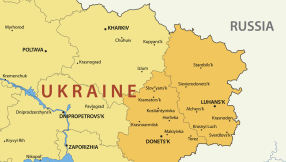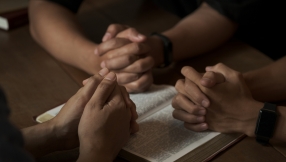Archbishops in Talks Over Church and Human Rights Abuses in Zimbabwe
The meeting between the Archbishop of Canterbury, Dr Rowan Williams, the Archbishop of Central Africa, the Most Rev Bernard Malango, and the Bishop of Harare, the Rt Rev Nolbert Kunonga, took place today in South Africa, the Anglican Communion News Service said.
During the meeting, the church leaders warned that the Anglican Church in Zimbabwe must develop an 'independent voice' on human rights.
The talks come at a tense time for the Diocese of Harare as the church, state and civil society in Zimbabwe continue to face serious challenges. On Wednesday, Christian Aid and Christian humanitarian agency Tearfund hit out at a clamp down by Mugabe's ruling ZANU PF party on Zimbabwean church groups carrying out human rights work.
Their criticisms follow the recent arrest of eight church leaders and the closure of the office of a church-based human rights organisation - funded by Christian Aid - in Harare.
The Brussels-based International Crisis Group (ICG), meanwhile, has voiced concern that an economic meltdown in Zimbabwe could destabilise the entire region.
Archbishop Williams and Archbishop Malango issued a joint statement at the meeting's conclusion in which they welcomed the meeting as a change to "meet face to face and discuss the role of the church in Zimbabwe and the wider region in working towards the realisation of the Millennium Development Goals".
"We shared our deep concerns with the Bishop of Harare about the situation in Zimbabwe, affirming those places where Anglican ministries are bearing fruit and the church is growing, but also expressing the widespread concerns in the global church and in the international community about the deteriorating economic life of Zimbabwe and issues of human rights and peaceful non-partisan protest.
In light of these challenges, the Primates said they "encouraged the development of an independent voice for the church".
"All ministers of the gospel must be free to serve and to speak for the needs of those most deprived and disadvantaged," they said.
"We want to find new channels of communication and to facilitate regional conversations about issues of development and justice, including the impact of sanctions, so that Anglicans may work together more effectively with and for the poor whom they serve in Christ's name," they added.
According to the ICG, more than three million Zimbabweans have already sought economic and political refuge in South Africa, Botswana, Mozambique, Namibia, Swaziland, Lesotho, Zambia and Malawi. Slightly more than a million have departed for the UK, the US and Canada.













